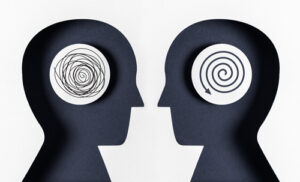Every family deals with stress and unhappy times in their life, but for many, depression can become a pervasive problem that affects every aspect of life. If you’re struggling to cope with the day-to-day demands of managing your family relationships and work responsibilities in the face of depression, then one option is for all family members to seek out counseling together. In this blog, we will learn all the basics of family therapy, its techniques, and its benefits of it.
Contents
Understanding Depression

Dealing with depression can be an extremely difficult process, both for the person experiencing it and those in their life. Understanding what causes depression is a key part of being able to effectively combat it. While many components can play a role in causing depression, some common contributing factors include family dynamics, biology or genetics, past trauma, and environmental or lifestyle factors.
Some of the most common signs and symptoms of depression include feeling hopeless, overwhelmed, or helpless; loss of interest in activities or hobbies that used to be enjoyable; sleeping too much or too little; difficulty concentrating; changes in appetite; and persistent feelings of sadness.
What is Family Therapy?
Family therapy is a type of psychotherapy that involves the entire family. It works by bringing the family together to address issues that are affecting the family unit as a whole. This type of therapy is based on the idea that family dynamics and interactions are important for each individual’s well-being.
Family therapy for depression is an effective approach that allows everyone in the home to address how they are impacted by mental illness, both consciously and unconsciously. Through this type of intervention, families learn new ways to support each other while addressing any sources or triggers of their issues — leading them closer to finding balance and joy through improved communication strategies.
Techniques of Family Therapy For Depression

There are some of the techniques used in family therapy to help with the treatment of depression:
Structured-Family Therapy
One of the main techniques used in family therapy is Structured-Family Therapy. This technique involves teaching families how to recognize the signs and symptoms of depression, helping them find ways to manage the condition together, and teaching problem-solving skills that can be used over time to help cope with stressful situations.
It also helps to build better communication between family members and strengthen the overall relationships within the family.
Communication Techniques
Another key strategy in family therapy is communication techniques. This involves teaching family members how to effectively talk about their emotions, productively share their thoughts and feelings, and provide helpful feedback to each other.
Sometimes this means teaching family members how to give each other supportive and understanding responses while being respectful at the same time.
Conflict Resolution Skills
Learning how to resolve conflicts healthily is another important part of family therapy. This often involves learning how to identify underlying triggers for conflicts, developing communication techniques that can be used to de-escalate situations, and learning how to use negotiation and compromise as a way to reach mutually beneficial outcomes.
These skills can be beneficial not just for the family dealing with depression, but also in other aspects of their lives.
Family Problem-Solving
Family problem-solving is another technique that is often used in family therapy. This involves teaching families how to work together to identify and solve complicated problems that may be affecting the individual with depression or the entire family.
This can involve teaching problem-solving skills such as brainstorming, analyzing the situation, and creating plans to tackle problems. This technique is often helpful in identifying areas of conflict within a family and effectively resolving them.
Psychoeducation
Family therapy also includes psychoeducational, which is providing information about depression and how it affects the individual experiencing it, as well as their family. This helps to reduce stigma and educate families about the condition so that they can provide more understanding and effective support for their loved ones dealing with depression.
It also helps families to better recognize any changes in behavior that could be signs of worsening depression, which can help them to intervene and provide the necessary assistance.
Benefits of Family Therapy for Depression
Family therapy can be a powerful way of tackling depression, as family members can offer vital insight and support to individuals experiencing depression. Some of the benefits of this therapy are:
- This form of therapy seeks to identify the sources of tension or underlying issues contributing to the individual’s depression, allowing for deeper healing and understanding.
- In many cases, family therapy helps to increase awareness in each member of their behaviors which may contribute to anger and/or conflict within the family unit.
- This can lead to greater communication and trust among all family members which often results in increased mental well-being for everyone involved.
- By improving relationships among family members, feelings of love and belonging become stronger which is beneficial for treating depression on an emotional level.
How to Get Started With Family Therapy?
To get started, it’s important to find a qualified therapist who has the training and experience to understand how the dynamics of the family can lead to depression.
- Before beginning treatment, you should discuss with your therapist what issues you’re hoping to address within the family structure, as well as establish clear expectations and goals.
- With an open mind and dedication from all members of the family, family therapy can be incredibly effective in bringing relief from depression while developing new skills for understanding and expressions of love between family members.
- An important factor to remember is that family therapy requires time and effort from all parties involved.
- It’s essential to remain patient and focused on the long-term goals of overcoming depression, as well as helping everyone in the family feel loved and appreciated. With dedication, resilience, and a commitment to positive change, family therapy can be an effective tool in treating depression.
Limitations of Family Therapy for Depression

Other than the benefits of family therapy for depression, there are some limitations to consider before choosing this form of treatment.
- First, not everyone responds positively to this type of approach and it may be difficult for those with more severe forms of depression to engage in the process. It also makes it difficult for those who are not comfortable with opening up to their family or may be embarrassed to talk about their depression.
- Second, the dynamics of family relationships can make it difficult to identify the sources of problems and create an environment where individuals can support one another. In some cases, this type of therapy may bring up issues that are too sensitive or too emotionally charged to discuss openly.
- Third, family therapy requires the cooperation and commitment of all individuals in the family, which can be hard to come by in some cases. Each person must be willing to open up, share their feelings and actively participate in the process.
- In addition, family dynamics can complicate matters and make it difficult for therapy to be effective.
- Finally, because family therapy requires the active participation of all members of the family, it can be time-consuming and costly. This may not be an option for those with limited resources or who cannot commit to frequent appointments.
Conclusion
Family therapy is a great way to help families move forward and resolve the issues they face. It helps family members communicate with each other healthily and respectfully while providing them with an opportunity to grow closer.
Family therapy can be used to address many different issues such as communication problems, addiction, violence, divorce or separation, and parenting. With the right therapist, families can find the help they need to make progress in their relationships. Family therapy is a valuable tool that can help families create a more harmonious home life and foster an environment of acceptance and understanding.
For more information, please contact MantraCare. Depression is a mental illness characterized by persistent feelings of sadness, hopelessness, and loss of interest in daily activities. If you have any queries regarding Online Depression Counseling experienced therapists at MantraCare can help: Book a trial Depression Therapy session


